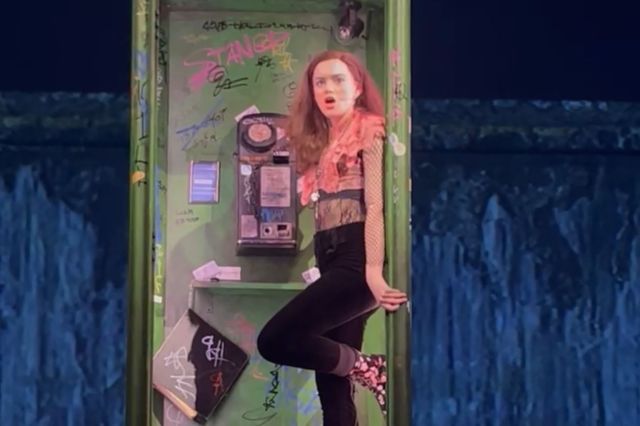Les Miserables is perfect, too perfect
As Matt Trueman finally sees ”Les Miserables” he reflects on the experience of watching such a slick show

© JOHAN PERSSON
We’re the same age, Les Mis and I. There’s only six months between us. It’s still taken 32 years for us to meet: a mega-musical with a global audience of 70 million, ahead of its time, and a lowly theatre critic with no dependents, very late to the party. It was always going to be a bit of a mismatch.
Les Miserables is, hand on heart, one of the slickest stagings I’ve ever seen. It has the sweep of a Hollywood blockbuster, even sitting on a fairly small stage. Scenes swish into one another, fluid as anything. People race, full pelt, over obstacles, and revolutionary mobs emerge out of the thick, foggy darkness, swelling in size with every step they take. The lighting is just superb. Its gloom seems to hide a whole city.
Everything in Les Mis – every moment, every mannerism – is just so. Every stage picture’s spot-on, balanced and counter-balanced with an Old Master’s eye, blocked within an inch of its life. Every beat is bang-on. Every mark gets hit. There’s not one hair out of place in the whole three hours; not one missing button; not one loose thread. It’s seamless. Unstoppable. Perfect.
Les Mis has the sweep of a Hollywood blockbuster
That’s exactly how it should be. It’s the art of a long-running show. You pay your money, you want to see Les Mis – not an approximation of it, the real deal. Les Biz. As it was in the beginning, is now and ever will be. Another day, another matinee.
And that applies right across the world. Each and every night, all over the planet, the same show is playing several times over. In London. In Madrid. In Tokyo. It’s the same show in body and in Seoul.
It has to be. That’s how the brand works. Every franchise has to be up to scratch. Every performance is bigger than itself. Whenever you happen to go, wherever you happen to be, you should see the same show. Les Mis can’t afford an off-night. It has to be perfect.
Only, impressive as that is, that’s not really why I go to the theatre. In fact, it’s the opposite of why I go to the theatre.
Maybe this is the difference between a show and a play. The two words carry different connotations. One – play – suggests discovery and invention. It remakes itself in the moment; plays out anew each night. Show, meanwhile, implies demonstration – an endlessly repeatable skill, almost a thing. If a performance is the same, night after night, is it any different from a recording? If you can set your watch by a show’s curtain call, is that show really and truly live?
Song after song sends shivers down your spine, but there’s something reflex about that
Even that’s choreographed. Most curtain calls are, to some extent, but Les Mis’ more than most. At the end, Valjean and Javert grasp one another’s hands – a gesture that drops any residual enmity between their characters and reminds us that these two, the actors, were on the same side all along. It’s a gesture of triumph: two colleagues saying, "We did it". And maybe it’s just the knowledge that they’ve done it eight times a week for months, maybe years, on end, but it feels false. The gesture’s studied somehow; automatic, not instinctive; an act designed to draw out one cheer more. It is, in short, manipulative.
Compare the curtain call at a new play – particularly after a preview or a press night. There’s a shape – you go here, you there – but it always goes a bit askew. Actors bump into one another. They turn the wrong way. Smiles break out, sometimes giggles. Adrenaline gets the better of them and real emotions, real people, show through. Without a character to hide behind or directions to follow, the individual actor suddenly appears in front of an audience. We see them, they see us. Our applause affects them. Their response affects us.
Play and show carry different connotations – one implies discovery, the other demonstration
We are, for a short while, all in it together – us clapping, them cracking – sharing a space and a moment, negotiating it, here and now, live and unscripted.
Often – more often than you might think – a curtain call is the most affecting part of a performance. It’s real, emotional, authentic – and watching that triggers a response in kind.
That, I’d argue, is what Les Mis can’t really do. It’s impressive, for sure, and it’s certainly stirring. Song after song sends shivers down your spine, but there’s something reflex about that, something surefire. The beating of your heart echoes the beating of the drums.
Isn’t that, in the end, the secret of its success? It’s not just that 70 million (and one) people have seen the same show. It’s that they’ve felt the same thing.













